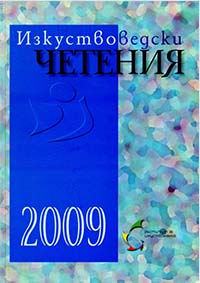Образният език на „свързаните изкуства" в Пекинската опера
The Figurative Language of 'Connected Arts' in the Beijing Opera
Author(s): Miglena Tzenova-NushevaSubject(s): Theatre, Dance, Performing Arts
Published by: Институт за изследване на изкуствата, Българска академия на науките
Summary/Abstract: The symbolic Chinese language has been rationalized by some researchers of this culture as a second form of the language which exists as an additional manner of communication between people. Since it offers more nuances of expression it is often perceived as a superior way of communication compared to the verbal one. The aim of the present study is to examine those symbols of the Beijing opera, which are not written signs but represent images and means of expression. The idea to look for the roots of the examined compound art in Chinese mythology, cosmology and ritual is new and has not been developed by any researchers in world opera studies. From this premise, realized by the author Miglena Tzenova-Nusheva, proceeds the innovatory generalizations about the figurative language and the 'connectivity of arts' and the discoveries about the concrete ties between the Chinese understanding of the principles of the Universe and the higher aspects of interpretation of the Beijing opera. The text also offers an orderly terminological apparatus dealing with a traditional and simplified official Chinese language and pinien.
Journal: Изкуствоведски четения
- Issue Year: 2009
- Issue No: 5
- Page Range: 86-95
- Page Count: 10
- Language: Bulgarian
- Content File-PDF

